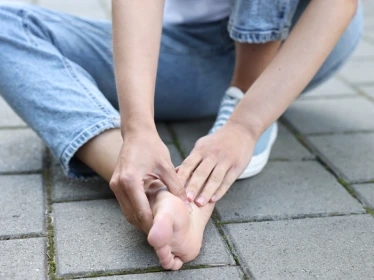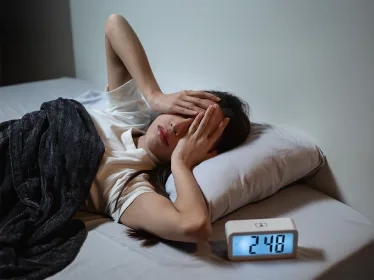What Is The Ideal Age to Get the HPV Vaccine?
The Human Papillomavirus (HPV) is one of the most common sexually transmitted infections (STIs), with significant implications for both men and women. It is responsible for a variety of diseases, including cervical cancer, genital warts, and other cancers, such as those of the throat, anus, and penis. The good news is that there is a vaccine to protect against these risks: the HPV vaccine. Getting vaccinated early is one of the most effective strategies for long-term protection.
The ideal age to receive the HPV vaccine is between 9 and 14 years old, as recommended by Singapore’s National Immunisation Schedule. This age range is carefully chosen because it offers the best possible protection against HPV before any potential exposure to the virus.

Benefits of getting HPV vaccinated earlier in life
Vaccinating at a younger age sets the foundation for long-term health protection, significantly reducing the risk of HPV-related diseases and contributing to broader community immunity. It's a straightforward yet powerful step towards a healthier future.
Stronger Immune response
Research¹ has shown that younger individuals, particularly those in the pre-teen years, develop a stronger and more lasting immune response to the HPV vaccine compared to those vaccinated later in life. The immune system is more responsive at this stage, allowing it to produce higher levels of protective antibodies. This heightened immune response means better long-term protection against HPV-related cancers and conditions, such as cervical cancer, throat cancer, and genital warts.
Protection Before Exposure
HPV is primarily transmitted through sexual contact, so vaccinating before an individual becomes sexually active ensures they are protected from the virus early on, rather than trying to prevent infection after exposure. Additionally, by getting vaccinated before this point, the body can build immunity without the risk of existing infection, offering a proactive approach to health protection.
Simpler Dosing Schedules
Vaccinating early also requires fewer doses for complete protection. For those under 15, a total of two doses is advised, while individuals aged 15 and above should receive three doses at intervals of 0, 1–2 months, and 6 months.
In Singapore, the National Childhood Immunisation Schedule (NCIS) and National Adult Immunisation Schedule (NAIS) recommend that all females aged 9 to 26 receive the HPV vaccine. For those vaccinated between 9 and 14 years old, only two doses are needed for full protection. However, if the vaccine is administered after age 15, a three-dose schedule is recommended to achieve the same level of immunity.
Book your HPV Vaccination here
I'm an Adult — Should I Still Get the HPV Vaccine?
If you missed getting vaccinated during this window, don’t worry— vaccination is available for people up to age 26. In some cases, adults aged 27–44 may also benefit from the vaccine², particularly if they are at risk for new HPV exposure.
While the HPV vaccine is most effective when given before any potential exposure to the virus, sexually active adults can still benefit from getting vaccinated. Even if you've already been exposed to one or more strains of HPV, the vaccine can protect against other high-risk types you may not have encountered yet.
For adults who may have had limited exposure or are re-entering new relationships, the vaccine provides a layer of protection against future infections. Additionally, as HPV can remain dormant for years, vaccination can help lower the risk of reinfection from different strains. Consulting your healthcare provider can help determine if the HPV vaccine is a good preventive measure for your health, regardless of age or sexual activity history.
Why Men Should Care Too?
Let’s clear up a common myth: the HPV vaccine isn’t just for women. While cervical cancer is a major concern, men are at risk too. In fact, Singapore now recommends the HPV vaccine for both males and female to create a stronger shield for the entire population.
The HPV vaccine is highly beneficial for men as it provides protection against multiple strains of the human papillomavirus (HPV), a common sexually transmitted infection linked to serious health complications. Men who receive the vaccine lower their risk of developing HPV-related conditions such as genital warts, as well as certain types of cancers, including penile, anal, and head and neck cancers. Since HPV often presents without symptoms, it can be unknowingly transmitted to sexual partners, increasing the risk of infection and related health problems for others.
By getting vaccinated, men not only safeguard their own health but also contribute to reducing the spread of HPV within the community. The vaccine is most effective when administered before sexual activity begins, but even sexually active individuals can benefit from protection against HPV strains they may not have been exposed to. Embracing HPV vaccination promotes long-term health and supports collective efforts to prevent HPV-related diseases.
A Simple Step Towards a Healthier Future

The HPV vaccine is safe, effective, and widely available. By getting vaccinated early, you or your child can take an important step in safeguarding against HPV-related diseases. If you haven’t received the HPV vaccine yet, it’s never too late to consider it. Consult your doctor or visit a health centre to discuss your options. Protecting yourself and your loved ones from preventable diseases has never been easier.
Protect yourself, protect your loved ones—because health is something worth prioritising.
¹ St Sauver JL, Rutten LJF, Ebbert JO, Jacobson DJ, McGree ME, Jacobson RM. Younger age at initiation of the human papillomavirus (HPV) vaccination series is associated with higher rates of on-time completion. Prev Med. 2016 Aug;89:327-333. doi: 10.1016/j.ypmed.2016.02.039. Epub 2016 Feb 28. PMID: 26930513; PMCID: PMC4969174.
² Centers for Disease Control and Prevention. (n.d.). HPV vaccination for adults aged 27 through 45 years: Evidence to recommendations. U.S. Department of Health and Human Services. Retrieved January 7, 2025, from https://www.cdc.gov/acip/evidence-to-recommendations/HPV-adults-etr.html




